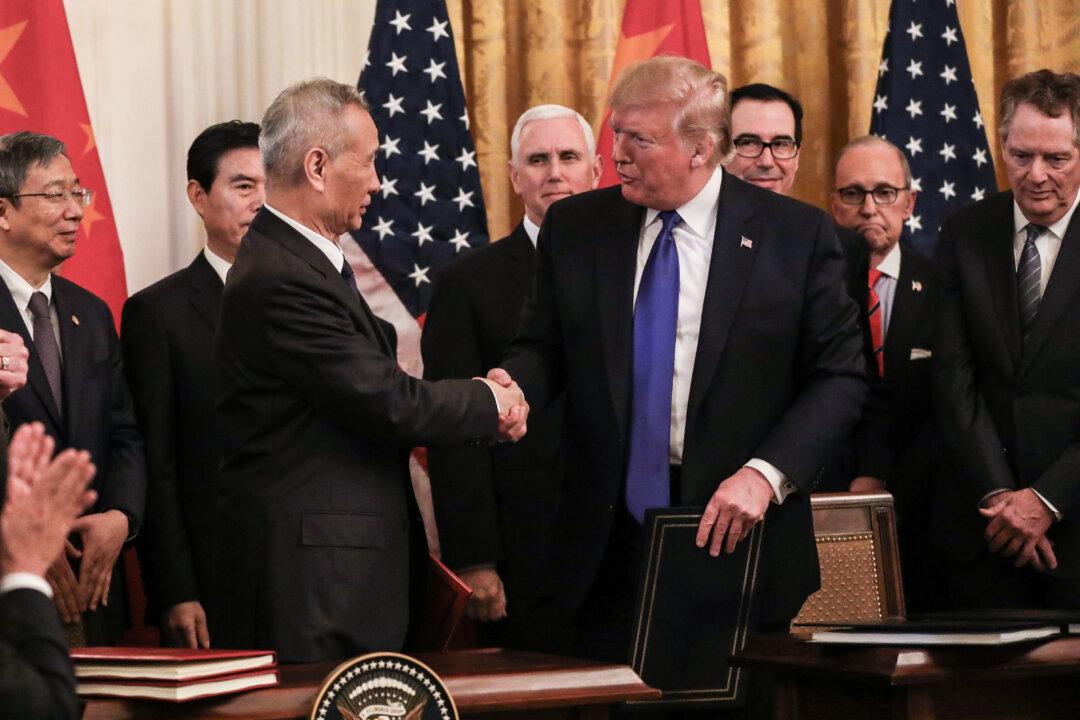In response to the signing of the landmark “phase one” U.S.-China trade deal, Chinese netizens criticized the Chinese regime for “surrendering” to the United States—apparently perplexed by Beijing’s compromises, as state media have consistently framed the deal as unequal.
The reaction stood in stark contrast to official statements by Chinese officials and state-run media, which praised the deal, saying it would benefit China and the world.





